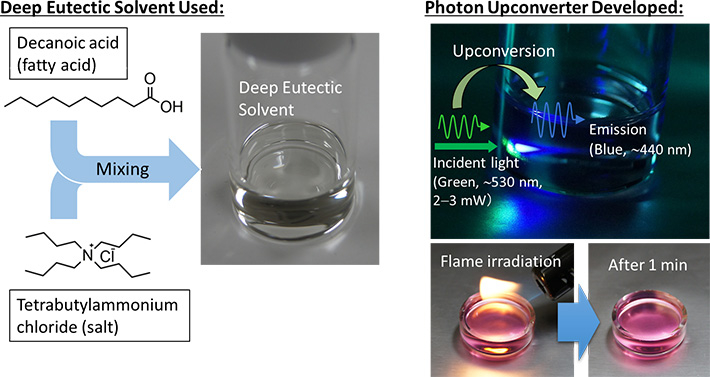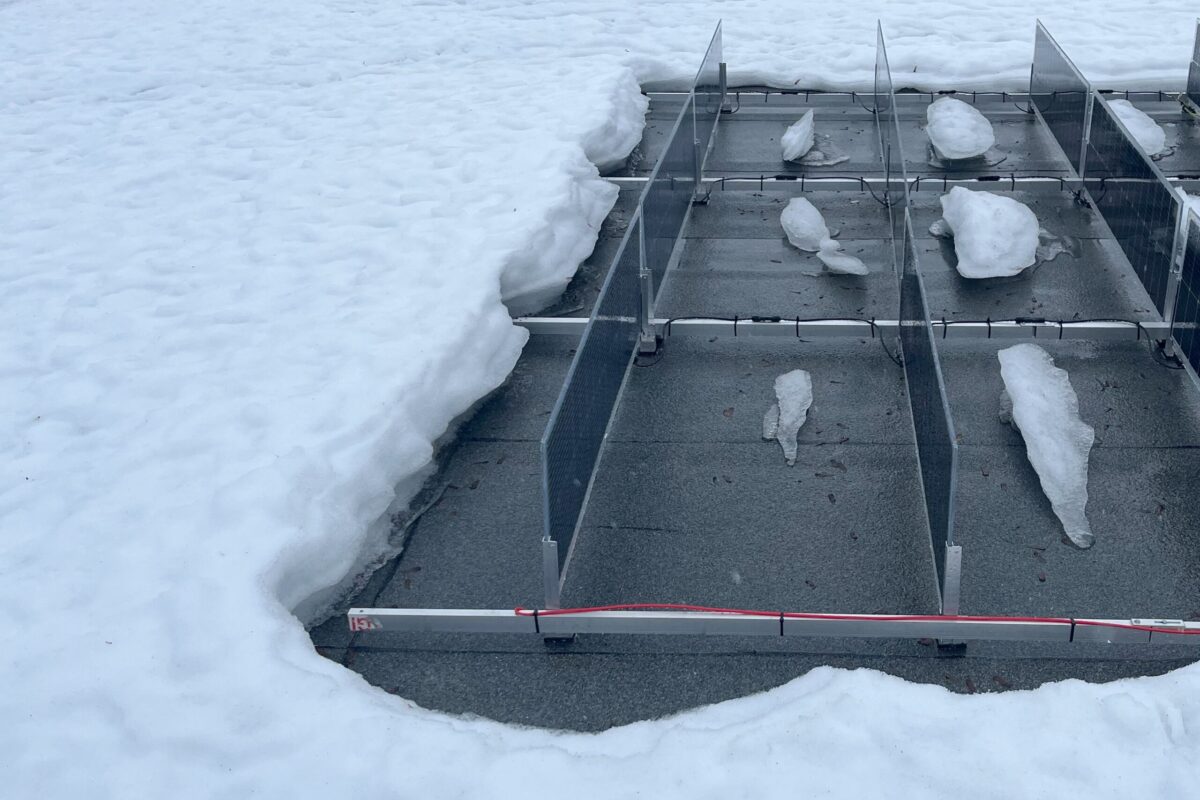Researchers at the Tokyo Institute of Technology (Tokyo Tech) claim they have developed a new photon upconversion platform that is low-cost, environmentally friendly, and able to provide high thermal stability.
The scientists have replaced the use of organic solvents, where the practical adoption is currently limited by a lack of thermal stability of the solvent mixtures, vapor toxicity, flammability and vapor pressures, with a new class of liquids known as deep eutectic solvents (DESs).
The DESs, the scientists assert, are cheaper, safer, and more biodegradable than organic solvents such as viscous fluidic material like ionic liquids, as these do not need a synthetic process.
“DESs”, the research group wrote in its paper, “are a potential alternative to ionic fluids, because they possess desirable properties similar to those of ionic fluids and can be created through a simple mixing of two substances, a hydrogen bond donor and a hydrogen bond acceptor, without the need for synthetic processes.”
The DES used for the new photon upconversion platform is used as the solvent for the sensitizer and emitter chromophores. The Tokyo Tech researchers said that the expected high thermal stability of the DESs was confirmed by the absence of ignition and fuming during exposure to a burner flame for 1 min.
The photon upconversion quantum yield of the samples reached 0.21. This, according to the research team, can be considered a relatively high efficiency, as it corresponds to the upconversion quantum efficiency of 42% (whose maximum is defined as 100%).
This content is protected by copyright and may not be reused. If you want to cooperate with us and would like to reuse some of our content, please contact: editors@pv-magazine.com.




I am completely lost. Why is this of potential use and value?